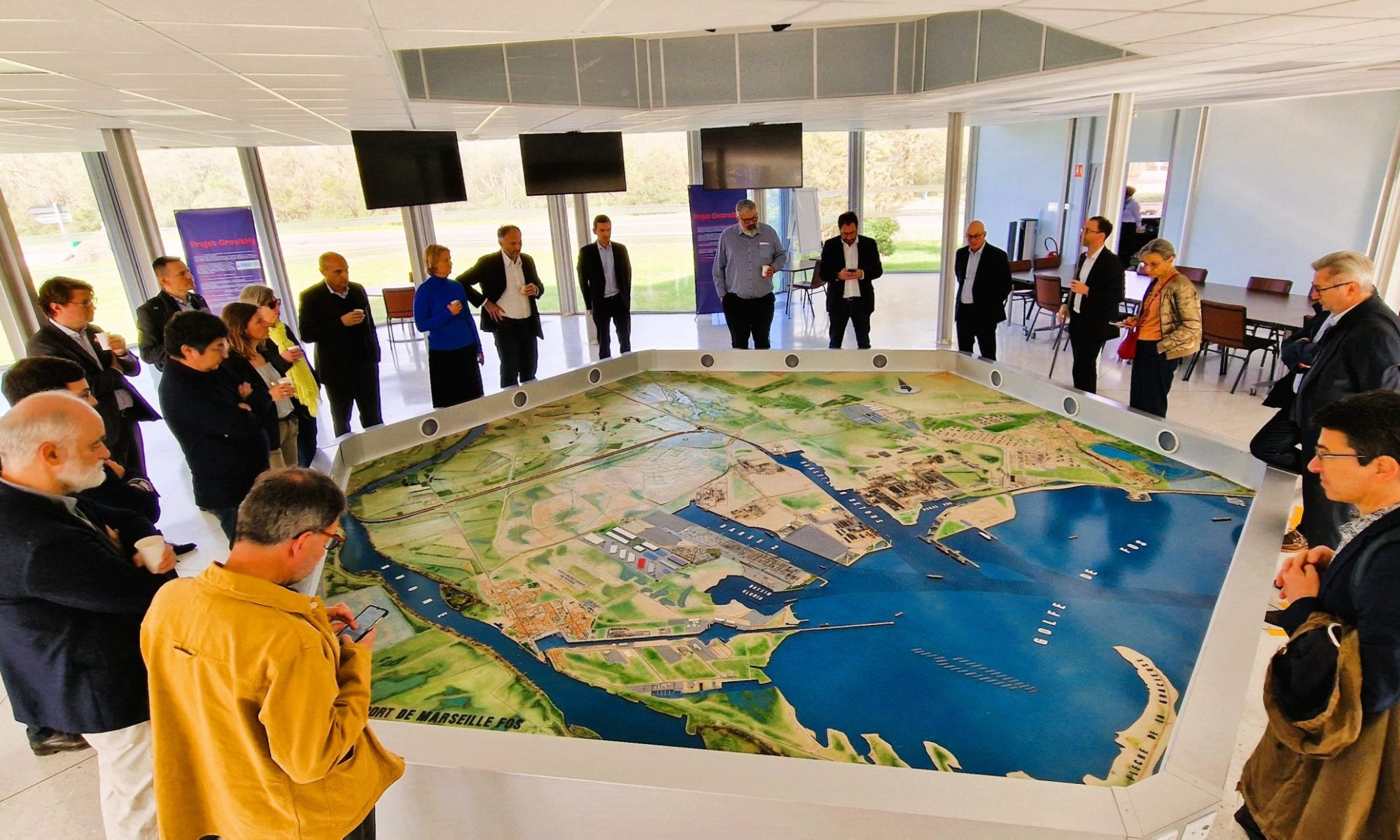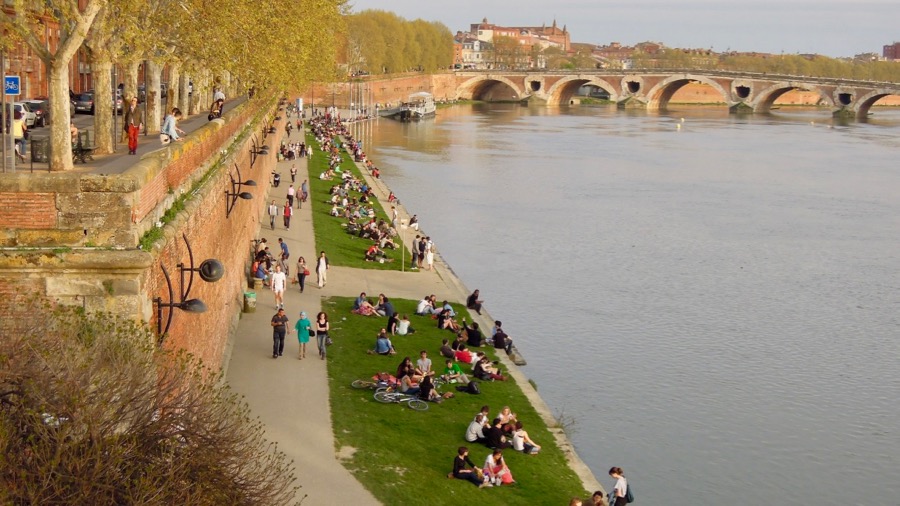Questions of urban mobility(ies)
Mobility in all its forms is a key challenge for the governance and development of urban areas. It raises issues of how to reconcile the demand for mobility and sustainable development, how to seize the opportunities offered by the digital and collaborative economy, rethink the categories of individual vs collective and public vs private, coordinate mobility services at the wider urban level, manage resources, and so on.

The topic of mobility emerged as a natural choice for discussions since it evolves so quickly and touches on so many critical areas: reducing traffic congestion and the environmental impact of transport, controlling the cost of public services, and making the most of numerous innovations to improve the efficiency and quality of mobility services available in the local area.
We used our time together to consider mobility from a number of angles: different contexts and experiences, presentation of various solutions, and feedback on how they have been implemented. In this field, as in many others, we noted the benefits that could be achieved through a convergence of strategies on the part of public and private stakeholders. We also took measure of the need for a sharp focus on absolutely every operational aspect.
The diversity of viewpoints adds to the interest of our gatherings: participants include representatives from local government, the business community, and the State, through France Stratégie. I would particularly like to thank France Urbaine, whose financial support and participation are vital to our work.
André THOMAS
Chief Executive of Toulouse Métropole and the City of Toulouse
PROGRAM
Integrating the challenges of mobility into local strategies
In Strasbourg, a global commitment for mobility
Vitality of the metropolitan area, cohesion and inclusion across the territory, climate–air–energy plan: the challenges of an integrated strategy for mobility.
> Pierre Laplane, Chief Executive of Eurométropole and City of Strasbourg, national representative of the BEST network
Draft legislation for a Framework Law on Mobility (LOM)
Consultation between the State and local governments on a proposed law to address issues of car-pooling, express coach services, the greening of vehicle fleets, safety, infrastructure planning, congestion charging, etc.
> Emmanuel de Lanversin and Pierre des Roseaux, advisors to the Director General, Department of Infrastructure, Transport and the Sea (DGITM) at the Ministry in charge of Transport
Urban logistics in the Paris region and parking reform
Major projects for urban logistics and the impact on town planning. Following the reform of paid parking as of 1 January 2018: an analysis of new potential usages of streets.
> Louis Jacquart, Head of the Mobility Agency of the City of Paris
Transformation of motorway A35 into an urban expressway
The A35 motorway currently cuts Strasbourg in half. A future western ring-road will channel traffic away from the A35, allowing a comprehensive urban project to leverage new usages.
> Pierre Laplane, Chief Executive of Eurométropole and the City of Strasbourg
Urban planning and mobility: the example of Greater Copenhagen
Upholding a long tradition of public transport and active modes of mobility, the Copenhagen area takes new initiatives to meet stricter environmental requirements.
> Dorthe Nøhr Pedersen, Managing Director of MOVIA, the public transport authority (PTA) of Greater Copenhagen
Optimising transport networks and service
Organisation of public transport in Greater Stockholm
Stockholm County Concil is responsible for all public transport in the urban area of 6,500 square kilometres. Mission, vision, values, organisation and activities.
> Caroline Ottosson, Director of the Mobility Department of Greater Stockholm and Managing Director of the public transport agency.
Territorial cooperation in the Toulouse Region
In Toulouse, mobility services connect 108 towns and communities to offer broad coverage and coordination between urban modes – including a 3rd metro line – and rail services.
> Jean-Michel Évin, Managing Director of Tisséo SMTC (PTA)
Regionalisation of rail transport: the example of Occitanie
Challenges, funding, strategic and operational governance of regional rail transport in a context of growing demand for mobility in urban outskirts.
> Simon Munsch, Chief Executive of Occitanie Region
How can SNCF regional train (TER) service become a central player in shared modes of mobility?
The long-time operator of regional rail transport is transforming its industrial base and corporate culture to better serve passengers.
> Anne Bosche-Lenoir, General Delegate of SNCF TER
Public funding of mobility
Without raising taxes, new ways of optimising revenue and spending have to be found to support public investment in sustainable mobility solutions.
> Guy Lebras, Director General of the association of public transport authorities (GART)
Innovation
Fostering innovation in the area of mobility
How can we encourage the digital transformation of transport? Anticipate, incorporate in strategies, plan… but also test, assess and share the knowledge gained from experimentation.
> Louis Fernique, Head of the Intelligent Transport Office of the ministries in charge of Transport and an Ecological and Solidary Transition
The revolution in driverless vehicles and transport on demand
What conditions need to be met for this transformation to serve the common good? How can metropolitan governments take the lead, with what scenarios for the transition?
> Patrick Pélata, Meta Strategy Consulting, former No. 2 at Renault
Rouen: the first shared mobility service and driverless vehicles on demand in open traffic in Europe
Rouen Normandy Autonomous Lab: publicly-run experiment at the end of 2018 with Renault ZOE driverless, 100% electric cars, and the driverless shuttle i-Cristal by Transdev and Lohr.
> Arthur Nicolet, President of Transdev Rouen S.A.S, a partner of the project
The Smart Mobility City of Helsinki: feedback from experiments with mobility as a service (MaaS)
A pioneer in MaaS, Helsinki has learned some lessons the hard way. Cities and public transport operating companies are faced with complex choices for their mobility of the future.
> Sami Sahala, Project Leader at Forum Virium Helsinki, the innovation office of the City of Helsinki
© photo David McKelvey, Creative Commons

